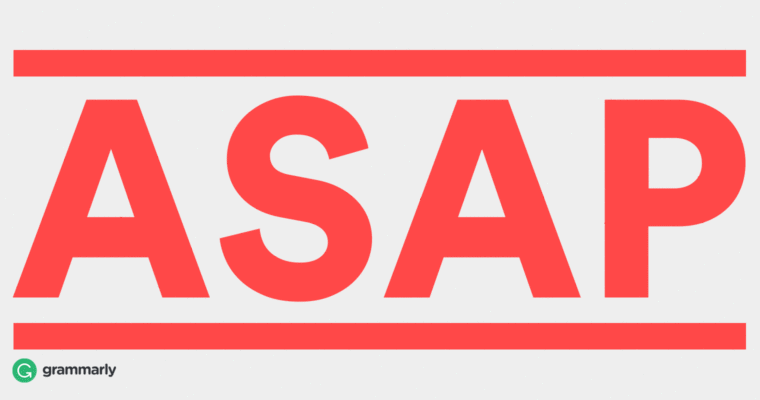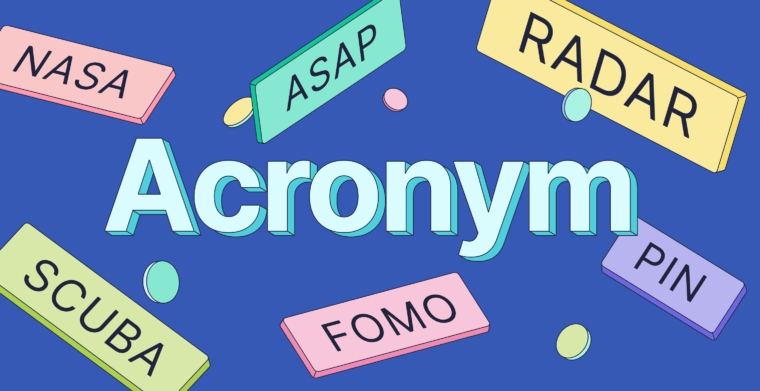
Your co-worker just sent you a message on Slack:
Bossy McBosserpants
I need the report as soon as possible
What runs through your head? Along with potential anxiety about a looming deadline (looks like you’re eating lunch at your desk again) you may feel annoyance. After all, that demand sounded pretty darn pushy.
Requests that include “as soon as possible” (or the ubiquitous acronym ASAP) can come across as rude. In fact, Forbes named emails with ASAP in the subject header among the five rudest. The acronym got its start in 1955 as U.S. Army slang, which may be why we sometimes associate it with the mental image of a drill sergeant barking orders.
Whether we view ASAP as rude or demanding depends on intangible factors like the context in which it’s used and your relationship with the person you’re communicating with. Here are a few pros and cons.
The Pros of Using ASAP
- It’s a handy code for people you work with frequently. ASAP can be a communication shortcut when it’s known that all parties have the same definition. If both the requester and the “requestee” understand that ASAP means “whenever you get around to it,” for instance, there’s less chance for misunderstandings.
- With the right context, it’s a good way to convey urgency. ASAP can serve as a motivator. It works well in titles when you want to show that something can happen quickly (and that quickly is a good thing). E.g., Here’s how to lose 10 pounds ASAP!
The Cons of Using ASAP
- It does nothing to help the recipient prioritize. Does your request need to be tended to by the end of the day, the end of the week, or whenever the recipient gets a little spare time? “As soon as possible” doesn’t convey any sort of time frame.
- It sounds harsh. “Get those supply requisitions to me ASAP, private! That’s an order!” Do you really want to come across as though you’re asking the person on the receiving end to drop whatever they’re doing and work on your problem?
- When overused, it becomes meaningless. When everything needs to be delivered ASAP, nothing is. In fact, ASAP can signify a lack of planning—you don’t really know when you need your request attended to, so you’re leaving it for someone else (namely, the person you made the request of) to sort out.
- It’s easily misinterpreted. Let’s say you used “as soon as possible” to express that you needed something from a colleague as soon as they could get around to it. If your colleague interpreted your request as an immediate need, he might have set aside other important tasks to tend to it. He’s likely to feel frustrated when he learns that the need wasn’t top priority.
Alternatives to ASAP
There are a few other ways to express need without resorting to the gruffness or ambiguity of “as soon as possible”. Consider these alternatives:
- As soon as possible, or _____. Use this to say that something’s urgent, but can wait until a specific deadline if necessary. “As soon as possible, or no later than end-of-day Friday.”
- Promptly. This one can serve as a nudge by suggesting the recipient has been less than prompt. (Be careful, though. It may come across as passive aggressive.)
- At your earliest convenience. You need it, but you’re willing to wait until the other person has a chance to tend to it.
- Whenever you’re able. Use this soft approach when you really don’t care when your request is tended to.
The best alternative: be specific
When you weigh the pros and cons, there are few good reasons to ask for anything ASAP, and some compelling reasons not to. The best alternative is a simple one—be specific. By taking the time to figure out your priorities, you’ll be helping your colleagues plan their own.
Let’s compare:
Bossy McBosserpants
I need the report as soon as possible
Vs.
Helpful McHelpfulson
Our team’s goal is to finish this project by the end of the month. Could you get the report to me by noon tomorrow?
Which request would you rather receive?
![]()






